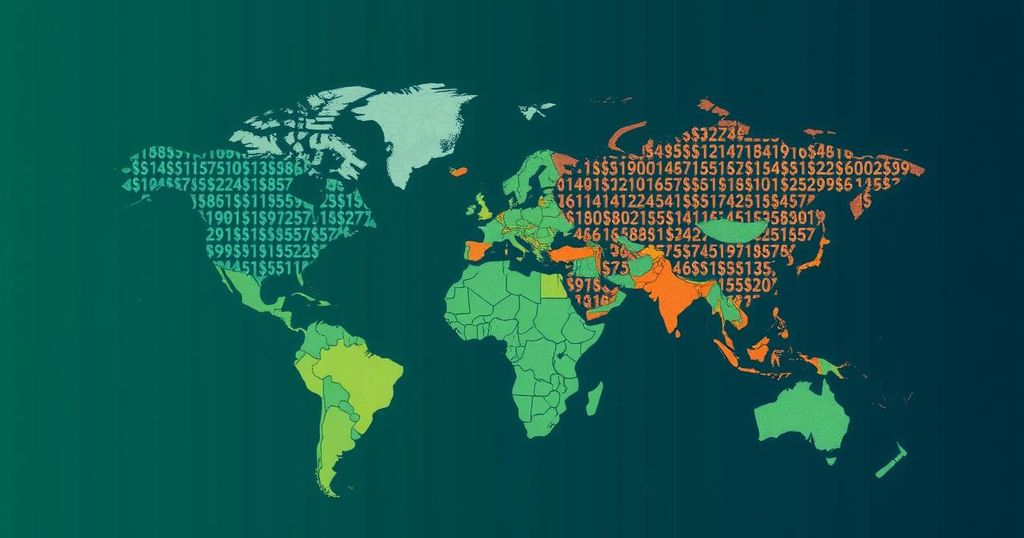During COP29 in Baku, the commitment of rich nations to provide $300 billion annually in climate finance was met with disappointment by developing countries, highlighting changing political realities surrounding climate action. The ongoing geopolitical challenges and the upcoming elections in several developed countries cast doubt on the future of climate financing, as the $300 billion alone falls short of the estimated $1.3 trillion needed per year.
The recent COP29 climate conference in Baku witnessed rising tensions among participating nations when wealthy countries promised $300 billion per year in climate finance. This commitment is perceived as insufficient by developing nations, illustrating a significant shift in global climate politics. The geopolitical landscape has become increasingly complex, particularly following notable leadership changes in the U.S., where Donald Trump’s election raised concerns over future climate commitments. Germany, Canada, and Australia will also undergo elections that could jeopardize green policies, showcasing a shift in the political will towards climate finance amidst global economic concerns fueled by inflation and geopolitical conflicts.
Europe, particularly Germany and the EU, continues to advocate for climate initiatives while calling for a more pragmatic approach to financial commitments to poorer nations. European Climate Commissioner Wopke Hoekstra emphasized the current reality of challenging geopolitical dynamics, stating that action must reflect what is politically feasible today. Furthermore, German Foreign Minister Annalena Baerbock underscored the necessity of setting achievable funding goals without overpromising. Meanwhile, the urgency for addressing climate change remains critical, as evidenced by ongoing extreme weather events that particularly impact vulnerable regions.
Climate finance discussions also spotlight the role of international financial institutions in addressing funding shortages. The COP29 agreement highlighted that countries could count financial contributions through these institutions toward their climate finance goals. This approach is viewed as a potential lifeline to facilitate funding but raises questions regarding accountability and transparency. Indeed, Mariana Paoli from Christian Aid expressed concerns over vague financial commitments, likening them to “creative accounting” and calling for clarity regarding the proportions of public funding versus loans.
Despite the modest increase in pledges compared to prior commitments, there is a significant gap between the amount promised and the estimated $1.3 trillion required annually for adequate climate financing. Activists emphasize that affluent nations must take responsibility for their historical greenhouse gas emissions, which have significantly contributed to the climate crisis faced by the most impoverished countries. With global temperatures rising, the focus on equitable and substantial climate financing is more urgent than ever.
The global landscape for climate finance is evolving, shaped by recent geopolitical shifts and the pressing need for effective action against climate change. Wealthy countries’ commitment at COP29 represents a response to years of advocacy from developing nations for increased support in combating climate impacts, underscoring the complexities of international negotiations on this issue. As climate-induced disasters become more frequent, the disparity between the financial commitments made by developed countries and the actual needs of vulnerable nations grows increasingly problematic. This situation calls for a reexamination of strategies employed by wealthier nations and international financial institutions to meet the pressing climate needs.
In summary, the COP29 conference has highlighted a critical juncture in global climate finance, revealing the inadequate commitments made by developed nations amidst evolving political landscapes. While expressions of solidarity and support persist, substantial gaps in funding remain. Wealthy countries must not only uphold their pledges but also devise more pragmatic financing strategies that genuinely benefit those most affected by climate change. As the world faces escalating climate threats, a robust, transparent, and accountable funding mechanism is essential for fostering equitable solutions.
Original Source: www.fox28spokane.com






